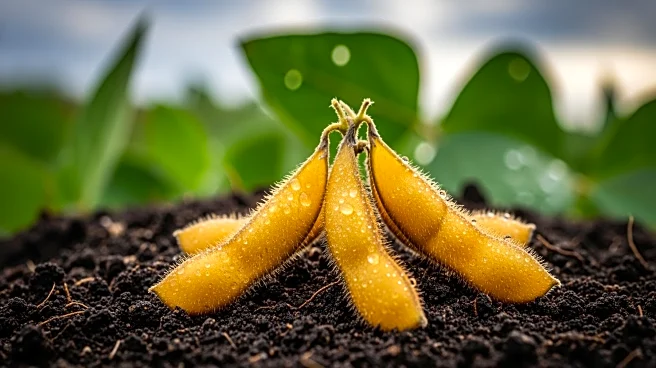Rapid Read • 8 min read
Researchers at King's College London have developed a novel toothpaste made from keratin, a protein found in hair, skin, and wool, which could potentially repair and protect damaged teeth. The study, led by Dr. Sherif Elsharkawy and PhD researcher Sara Gamea, found that keratin can form a protective coating on teeth that mimics natural enamel when it interacts with minerals in saliva. This innovative approach offers a sustainable alternative to traditional dental treatments, which often rely on plastic resins that are less durable and potentially toxic. The keratin-based material, sourced from biological waste, could help prevent enamel erosion caused by acidic foods, poor oral hygiene, and aging, ultimately reducing tooth sensitivity and decay.
AD
This development represents a significant advancement in dental care, potentially transforming how tooth decay is treated. By using a biomaterial derived from waste products, the research not only addresses dental health issues but also promotes sustainability. The ability to repair enamel with a natural, non-toxic material could reduce reliance on synthetic dental products, offering a safer and more environmentally friendly option. This innovation could benefit individuals suffering from tooth sensitivity and decay, providing a more effective and long-lasting solution. Additionally, it highlights the growing intersection of biotechnology and dentistry, paving the way for future advancements in restorative dental treatments.
The researchers at King's College London are optimistic about the future applications of this technology. With further development and collaboration with industry partners, the keratin-based toothpaste could become commercially available within the next two years. This would allow for broader access to this innovative dental treatment, potentially improving oral health outcomes for many. The success of this research could also inspire further exploration into other biological materials for medical and dental applications, expanding the possibilities for sustainable and effective healthcare solutions.
The use of keratin from hair and wool not only addresses dental health but also raises important questions about the use of biological waste in medical applications. This approach could lead to a shift in how waste materials are perceived and utilized, promoting a circular economy in healthcare. Furthermore, the development of such biotechnologies may influence regulatory frameworks and ethical considerations in the medical field, as the integration of natural materials into treatment options becomes more prevalent.
AD
More Stories You Might Enjoy












